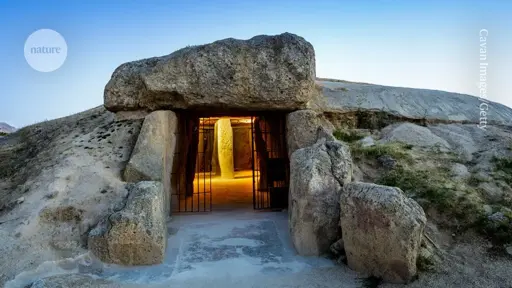- cross-posted to:
- science@lemmy.world
- cross-posted to:
- science@lemmy.world
The Neolithic farmers and herders who built a massive stone chamber in southern Spain nearly 6,000 years ago possessed a good rudimentary grasp of physics, geometry, geology and architectural principles, finds a detailed study of the site.
Using data from a high-resolution laser scan, as well as unpublished photos and diagrams from earlier excavations, archaeologists pieced together a probable construction process for the monument known as the Dolmen of Menga. Their findings, published on 23 August in Science Advances1, reveal new insights into the structure and its Neolithic builders’ technical abilities.



Not to diminish either the abilities of the builders or the sincerity of the researchers, it strikes me that there’s sort of an anthropic principle dynamic going on here…
That this structure exhibits sound building techniques essentially goes without saying, since it’s still standing. If it didn’t, it wouldn’t be, so researchers wouldn’t be able to study it and draw countervailing conclusions from it.
Based on the article, it sounds like they actually did have a basic understanding of sound building techniques because they went above and beyond the basics by doing things like carving sockets into the bedrock.
However that doesn’t mean they all gathered around a table, broke out their blueprints, calipers, slide rules and abacuses to design a structure that would last millenia. As you’re implying, there are likely many others that didn’t last that long.
My very uneducated speculation is that the ones still standing were later ones built after they’d already had a lot of practice building things. There were likely tens or hundreds of them that didn’t last because they were still figuring out how to build structurally stable buildings.